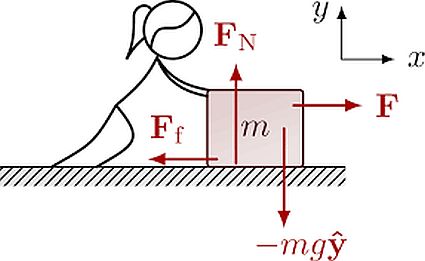We are obsessed with eliminating the friction! We want to create frictionless experiences. We fetishize efficiency. We leverage technology to do the work. We strive for easy.
But what if we were to shift our point of view?
What if we recognized that friction isn’t our enemy, but it’s our source of value?
Permit me, for a moment, to revert back to my training as a physicist. I learned that friction underlies everything that occurs. Without friction, we get no traction, we cannot move. It’s like the tire on ice that is spinning, but doesn’t move because of insufficient friction. We learn that friction is required not just for motion, but also to change the direction of that motion or to stop it. We learn that friction produces heat, which is the source of energy. We learn that in the absence of friction, we live in maximum entropy–that friction helps bring structure and shape in chaos.
And the same is true in business, selling, and our societal relationships. Applying these basic principles of physics, we can think of friction very differently. Without friction, we can’t move forward. Without friction, we can’t change. Without friction we can’t create energy. Without friction we are left with chaos.
We can now begin to think of friction as a signal. Helping us understand where things are. Helping us see things that may not be obvious. Or where there may be disagreement. We start looking for the friction as clues.
We can think of friction as the key factor driving engagement. There is no friction if we aren’t engaged. It is the friction of conversations, of different ideas, of agreeing/disagreeing, of learning and developing; whether with our peers, our customers, our organization.
It is friction that enables and drives change. As we want to change, grow, scale, what forces do we need to apply, what friction do we need to create.
We design our processes, playbooks, GTM models to be linear and perfectly predictable. We leverage technology to reduce the friction, making them perfectly efficient. Yet the real systems, there are resisting, corrective, counterweight forces at play. We tend to think of them as flaws, ignoring or trying to eliminate them. In reality the friction isn’t the flaw, but it’s where the process becomes real. And our ability to succeed based on our ability to work in that friction, perhaps creating friction, ourselves, to drive the change.
I’ve written about Embracing the “Messiness” of Buying and Selling. That messiness is the friction I’m referring to here. It is in how we embrace this messiness that we make things happen.
I’ve also written about our obsession to have AI to all our work for us in Mechanics Over Meaning. Here the micro-friction, the thinking we do while typing the task, is where the real value is, not the typing. And eliminating that typing eliminates the friction.
I’ve talked about how we become Entangled With Our Customers. And the secret to entanglement is that it lives in friction.
Friction is all about how things get done. It’s fundamental to movement, to progress. It’s fundamental to change. Perhaps the secret is no how we eliminate friction but how we harness the power of friction. How do we remove/counteract the friction that may be impeding us or causing us to go in the wrong direction? How do we inject the friction needed to learn, grow, change? How do we handle/manage it, productively, to achieve our goals.
So much of our drive to eliminate friction is sparked by our drive for comfort, simplicity, familiarity. But is that really the point. Perhaps, what we seek is clarity. Friction provides the impetus to help gain greater clarity.
We’ve been missing the point. We’ve been ignoring or trying to eliminate the friction. And when we do this, we don’t change.
Friction allows for controlled movement in any system.
The value IS the FRICTION!
Afterword: This is the AI generated discussion this post. I’m constantly amazed at the quality of these discussions, but more importantly, how these seem to bring greater clarity to what I am trying to say. This is really good! Enjoy!

Leave a Reply